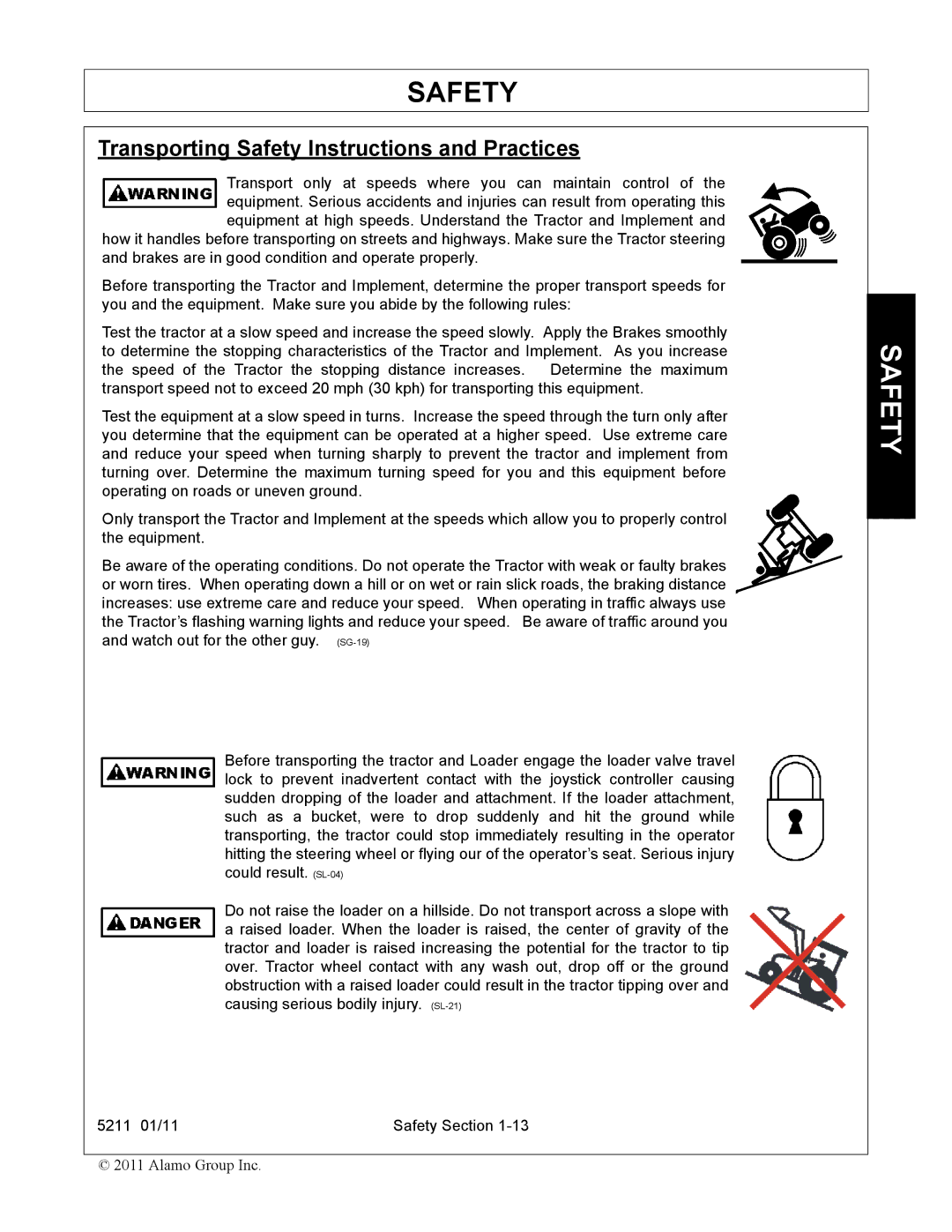
SAFETY
Transporting Safety Instructions and Practices
Transport only at speeds where you can maintain control of the equipment. Serious accidents and injuries can result from operating this equipment at high speeds. Understand the Tractor and Implement and
how it handles before transporting on streets and highways. Make sure the Tractor steering and brakes are in good condition and operate properly.
Before transporting the Tractor and Implement, determine the proper transport speeds for you and the equipment. Make sure you abide by the following rules:
Test the tractor at a slow speed and increase the speed slowly. Apply the Brakes smoothly to determine the stopping characteristics of the Tractor and Implement. As you increase the speed of the Tractor the stopping distance increases. Determine the maximum transport speed not to exceed 20 mph (30 kph) for transporting this equipment.
Test the equipment at a slow speed in turns. Increase the speed through the turn only after you determine that the equipment can be operated at a higher speed. Use extreme care and reduce your speed when turning sharply to prevent the tractor and implement from turning over. Determine the maximum turning speed for you and this equipment before operating on roads or uneven ground.
Only transport the Tractor and Implement at the speeds which allow you to properly control the equipment.
Be aware of the operating conditions. Do not operate the Tractor with weak or faulty brakes or worn tires. When operating down a hill or on wet or rain slick roads, the braking distance increases: use extreme care and reduce your speed. When operating in traffic always use the Tractor’s flashing warning lights and reduce your speed. Be aware of traffic around you and watch out for the other guy.
Before transporting the tractor and Loader engage the loader valve travel lock to prevent inadvertent contact with the joystick controller causing sudden dropping of the loader and attachment. If the loader attachment, such as a bucket, were to drop suddenly and hit the ground while transporting, the tractor could stop immediately resulting in the operator hitting the steering wheel or flying our of the operator’s seat. Serious injury could result.
Do not raise the loader on a hillside. Do not transport across a slope with a raised loader. When the loader is raised, the center of gravity of the tractor and loader is raised increasing the potential for the tractor to tip over. Tractor wheel contact with any wash out, drop off or the ground obstruction with a raised loader could result in the tractor tipping over and causing serious bodily injury.
5211 01/11 | Safety Section |
© 2011 Alamo Group Inc.
